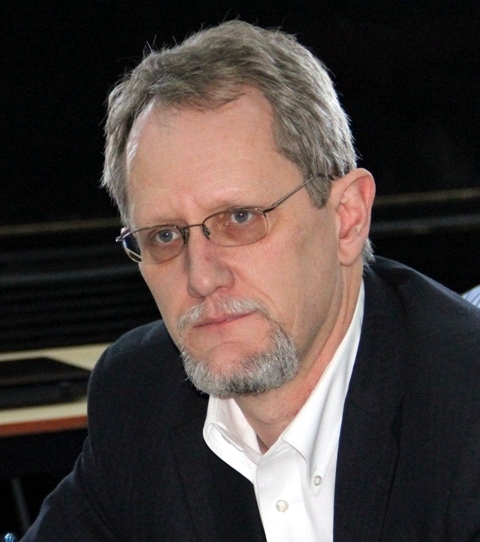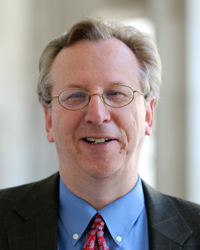CERES Interviews New Adjunct Professor Gavin Helf and Returned Adjunct Professor William Pomeranz
CERES is excited to introduce you our new Adjunct Professor Gavin Helf and returned Adjunct Professor William Pomeranz!

Professor Helf is a senior expert on Central Asia for the U.S. Institute of Peace where he works on Kazakhstan, Kyrgyzstan, Tajikistan, Turkmenistan, and Uzbekistan. He worked in the Asia and Middle East bureaus of the U.S. Agency for International Development on democracy promotion and countering violent extremism. From 1984 through 2007, he studied, lived, and worked in the Soviet Union and its successor states, mostly in Central Asia and the Caucasus. Professor Helf is teaching REES 556 Looking for Trouble in Central Asia this Spring semester.
Please tell us a little about your background.
I was lucky enough as an undergraduate and graduate student to live in the Soviet Union before and during perestroika, and was there when the Soviet Union collapsed. Since then I’ve mostly worked in international development, first with NGOs and then with the United States Agency for International Development on promoting democracy, good governance, and human rights in the Caucasus, Central Asia and, for two years, in Iraq. I left the U.S. Government in 2019 and am now a senior expert on Central Asia at the U.S. Institute of Peace. I write about the sources of violent conflict in the region and work on the reintegration of returnees to Central Asia from Iraq and Syria.
What are you looking forward to in teaching and being part of the Georgetown community?
I am excited about the energy and enthusiasm of Georgetown students. It reminds me of how exciting it was to learn about Central Asia or other very different places when I was that age. It’s fun to see a place you’ve studied for decades through new eyes!
With many things going on in Central Asia, how are you orienting your students to keep up with everything going on?
One of my goals is to give my students the resources they need to keep up on Central Asia after the semester is over. Every week, each student shares an article about “their” country with the other students and then leads a short discussion on that topic. There are some pretty good English-language resources on the region that include Western observers and local voices. I even point them towards Russian commentary on Central Asia for a very different perspective. While there is a lot going on in five countries, hopefully the themes of the course give students a context for understanding how events unfold.
Are there any perspectives or skills that you are specifically helping your students grasp in your course? What do you want your students to have gained at the end of the semester?
The whole course is about perspectives. A single seemingly straight-forward event in Central Asia can be spun very differently if seen through the lenses of nationalism, Islamists, organized crime, elite political infighting, foreign interference or any of a number of other perspectives. Recent events in Kazakhstan are a great example. The answer is almost always something like “all of the above.” I want the students to have some familiarity with these perspectives and know where to go to follow events from a range of different sources.

Professor Pomeranz is the Acting Director of the Wilson Center’s Kennan Institute. He is an expert guide to the complexities of political and economic developments in Russia, particularly through the lens of law. He leverages extensive, hands-on experience in international and Russian jurisprudence to address a wide range of legal issues, from the development of Russia’s Constitution to human rights law to foreign investment and sanctions. He is also the author of Law and the Russian State: Russia’s Legal Evolution from Peter the Great to Vladimir Putin (Bloomsbury, 2018). Professor Pomeranz is teaching REES 575 Russian Law in Comparative Perspective this Spring semester.
Could you tell us a little about your background?
I specialize in Russian Law; this is a subject with which I am very acquainted. For my PhD, I researched pre-revolutionary Russian law, advocatory, national democracy. I practiced law in Moscow for one and a half years and in the States for 6 years.
What are you looking forward to in teaching again at Georgetown?
I enjoy interacting with students, engaging with them, and going over materials that I find fascinating and crucial to the study of Russia. Writing lectures and going through the legal system is an asset. Students usually have had little exposure to Russian laws, and I always find it rewarding to share that knowledge and add different perspectives that students are not normally exposed to.
Has the legal system in Russia changed since the last time you taught at CERES? Has your course’s focus changed? How would you say the knowledge of the Russian legal system contributes to one’s understanding of Russia’s politics?
Yes, it has significantly [changed] since I last taught this course. The US introduced major sanctions against Russia after the annexation of Crimea. Before, it was integrating Russia into the global legal system, but now it is more on Russia’s separation of itself from the international law system. We look at constitutional amendments and how they changed Russia’s approach to international law and the domestic legal system.
Having an understanding of Russian law allows one to compare and contrast it with the West, and that is different from the perspectives that students usually learn. Study of Russian law also allows students to get acquainted with wide aspects of Russian society, civil and criminal, and politics about laws. The course aims not simply to understand the code, but what law plays in Russian society.
As the Acting Director of the Kennan Institute, you regularly engage with current affairs of the region. What advice do you have for students who are interested in researching and writing about ongoing affairs?
The best way to understand the region is to go there. I spent some time in the USSR and did research with the National Endowment of Democracy. I saw how Russia was changing and experienced working in a law firm in Russia. I had first hand experience of the Interworking of Russian law and had great colleagues. I valued the experience of interacting with Russians in Russia on a first hand basis.
When I was in graduate school at the University of London, we had a press study group. A lot of things were going on, you know, it was perestroika. They were reevaluating everything, and it was a great window to see how things were changing in the Soviet Union. In the study group, we assigned a newspaper to each student to read everyday and compile information. It really brought my Russian up by reading Russian newspapers. Reading Russian newspapers and different Russian news sources and watching Russian TV have helped me know how to look at Soviet and Russian press and how it has been changing.
